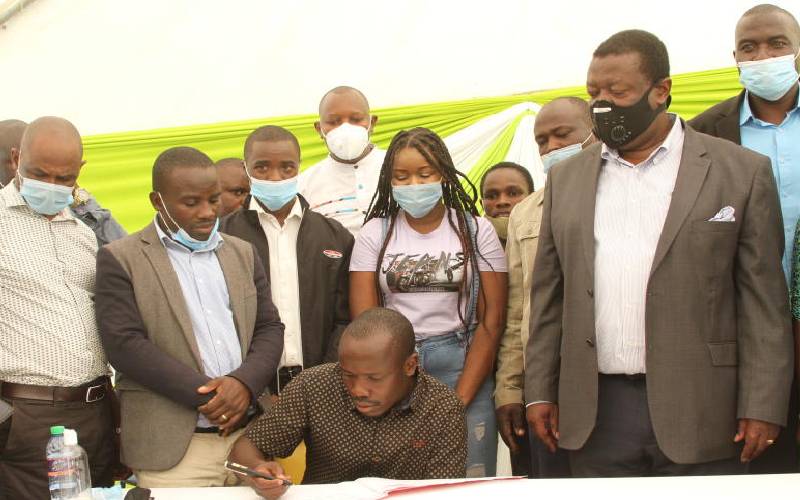×
The Standard e-Paper
Smart Minds Choose Us

Amani National Congress leader Musalia Mudavadi during the party’s launch of the drive for collection of BBI signatures in Nairobi, yesterday. [David Njaaga, Standard]
The push to have a referendum by June next year could occasion a change in the 2022 General Election date.